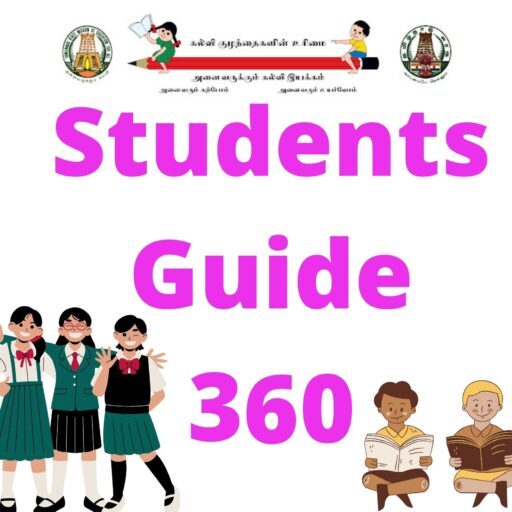4th English Guide Term 2 Lesson 2 Poem What Do Humans Save?
Tamilnadu 4th English Solutions Term 2 Poem What Do Humans Save?
4th English Term 2 Lesson 2 Poem What Do Humans Save? Book back Answers Term 2 book back and additional question answers. 4th standard English All Subject Text Books download pdf. 4th English Samacheer kalvi guide Term 1. 4th All Subject Bok Back Answers.

4th English Guide What Do Humans Save? Text Book Back Questions and Answers
A. Match with their storing places.
Question 1.
Answer:

B. Fill in the blanks with rhyming words.
Question 1.
Anthill __________Answer:Winter’s chill
Question 2.
Tunnels __________Answer:Channels
Question 3.
Larder __________Answer:Starter
Question 4.
Tree __________Answer:Free
C. Answer the following questions.
1. Where do ants pile their food?
Answer:
- Ants pile their food in the anthill.
2. Where do the crocodiles save?
Answer:
- The crocodiles save food in their pantries.
3. What do you save? Why it is needed?
Answer:
- We have to save everything that nature gave. It is needed for our future generations.
Answer the following Additional Questions and Answers.
1. Where do squirrels reserve food?
Answer:
- Squirrels reserve food in a larder.
2. What do they store?
Answer:
- They store a seven course meal.
3. When do the leopards eat their prey?
Answer:
- Leopards eat their prey when they are free.
4. Where do the farmers store their harvest?
Answer:
- The farmers store their harvest in a granary.
5. Why do ants pile food in the anthill?
Answer:
- Ants pile food in the anthill to eat it during the winter.
A. Write was or were to complete the sentence.
Question 1.
I ________ the leader of my class.
Answer:Was
Question 2.
We ________ in New York, last week.
Answer:Were
Question 3.
You _________ a baby.
Answer:Were
Question 4.
Raju ________ my junior in school.
Answer:Was
Question 5.
Kavi _________ kind to me.
Answer:Was
Question 6.
The bus _________ brand new.
Answer:Was
Question 7.
They _________ friends.
Answer:Were
B. Write the past form of the verbs.
Question 1.

read – _________
Answer:read
Question 2.

sing – ___________Answer:Sang
Question 3.

sleep – __________Answer:Slept
C. Complete the sentence with the simple past form of the given verbs.
Question 1.
It _________ (snow) last winter.Answer:Snowed
Question 2.
The rain ___________ (continue) all day.Answer:Continued
Question 3.
I __________ (lose) my balance.Answer:Lost
Question 4.
We __________ (stand) for hours.
Answer:Stood
Question 5.
Tom __________ (come) home from school.
Answer:Came
D. Circle the sentences that is in simple future tense.
Question 1.
They washed the van.
Kamal will meet you at the shop.
My dad helps me read.
It will rain tomorrow.
He ate many mangoes.
Answer:

E. Fill in the blanks with simple future tense of the verb.
Question 1.
Sakthi _________ (earn) a lot of money.
Answer:Will earn
Question 2.
You _________ (travel) around the world.
Answer:Will travel
Question 3.
Everybody ___________ (adore) you.
Answer:Will adore
Question 4.
Many people _________ (serve) you.
Answer:Will serve
Question 5.
They ________ (anticipate) your wishes.
Answer:Will anticipate
Let us listen
Listen to the advertisement and answer the questions given.
Question 1.
How many accounts can a parent open at most?
- 3
- 2
- 3
Question 2.
When does the deposit mature?
- Both
- 21 years
- 14 years
Question 3.
The minimum deposit for an account is _________
- 1000
- 2000
- 500
Question 4.
Income tax exemption given under the section ___________
- 80C
- 18C
- 16A
Question 5.
The name of the savings scheme is ___________
(a) Public Provident Fund
(b) Selvamagal
(c) Postal Life Insurance
Answer:
Activity to be done by the students
Let us speak
Question 1.
Learn how they speak in the bank and practise as if you were in that situation.
Answer:

Bank Manager : How can I help you?
Customer : I am here to deposit money.
Bank Manager : Ok, let me fill the form for you.
Customer : Thanks sir. But I can fill it myself.
Bank Manager : Good. Here is your pay-in-slip.
Customer : Which counter should I go to?
Bank Manager : Let me check your pay-in-slip.
Customer : Here it is, sir.
Bank Manager : Good, you have filled it correctly. You can deposit your money in counter 3.
Customer : Thank you sir.
What Do Humans Save? Summary in English and Tamil
Ants pile food in the anthill They eat it during the winter’s chill
எறும்புகள் உணவை எறும்புக் கூட்டில் சேமிக்கின்றன. குளிர்காலத்தில் அவை அவற்றை உண்ணுகின்றன.
Moles dig long and winding tunnels And save worms in the channels
எலிகள் நீளமான சுழல் குகைகளை அமைக்கின்றன. அவற்றில் மண்புழுக்களை சேமிக்கின்றன.
Crocodiles are found in many countries They store food in their pantries
முதலைகள் பல நாடுகளில் காணப்படுகின்றன.அவை தம் உணவை அவற்றின் கிடங்குகளில்(நீருக்கு அடியில் ஓரிடம்) சேமிக்கின்றன.
Squirrels reserve food in a larder They store a seven course meal with starter
அணில்கள் தங்கள் உணவை அலமாரி போன்ற அமைப்பில் ஒதுக்கி வைக்கின்றன.அவை ஏழு வகை உணவுகளை, துவக்க உணவுடன் சேர்த்து வைக்கின்றன.
Leopards keep their prey on a tree And eat them when they are free Farmers store the harvest in a granary Soon to be packed in the cannery
சிறுத்தைகள் தங்கள் உணவை மரத்தில் வைக்கின்றன. அதை பின்னர் நிதானமாய், ஓய்வில் உண்ணுகின்றன விவசாயிகள் தங்கள் அறுவடையை களஞ்சியத்தில் சேமிக்கின்றனர்.பிறகு அவற்றை கோணிகளில் அடைக்கின்றனர்.
What do you save? everything that nature gave.
நீங்கள் என்ன சேமிக்கின்றீர்கள்? இயற்கை கொடுக்கும் அனைத்தையும் தான்.
What Do Humans Save? Glossary
- Cannery – a place where the food is packed in cans or tins (உணவை தகர குவளைகளில் அடைக்கும் இடம்)
- Granary – a storehouse for threshed grain (போரடிக்கப்பட்ட உதிர்க்கப்பட்ட) தானியங்களை சேமிக்கும் இடம் (களஞ்சியம்)
- Pantries – a storage room (ஒரு சேமிக்கும் இடம்)
- pile – to collect (சேகரித்தல்)
- prey – an animal that is hunted and killed by another for food (ஒரு மிருகம் மற்றொன்றால் உணவுக்காக வேட்டையாடப்படுவது.)





